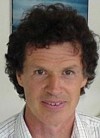The Times Higher Education Supplement (THES) published another bash at BSc degrees in anti-science. This one was accompanied by a defence from Brian Isbell, head of the department of complementary therapies at Westminster University. Isbell’s defence was different from Westminster’s first defence, but every bit as unsatisfactory, in my view.
Following the kerfuffle caused by Nature, THES asked for 800 words on the same topic, Bachelor of Science degrees in subjects that are anti-science (read it here). Every time I read an official validation document I am reminded inexorably of the inimitable Laurie Taylor, which is why the article starts thus.
| The vice-chancellor of Poppleton University is pleased to announce that the university’s finances have been transformed since the conversion of its old-fashioned department of physics and astronomy into the new department of alternative physics and astrology. Quality is ensured by the course validation and top Quality Assurance Agency rating, both awarded by a distinguished panel of academics with appropriate expertise in astrology. (Apologies to Laurie Taylor.) |
As it happens, Laurie Taylor’s column in the same issue of THES is on “Maintaining Standards”, and is as grimly hilarious as always. And his column in the following week (13th April) was about the report of the external examiner, Professor J.K.L. Anonymous, on the Universlity of Poppleton’s BSc in palmistry (“There were 36 first-class papers, 22 upper seconds and only one marginal failure”. Well, there’s a coincidence.
My piece ends thus.
| If a few vice-chancellors appear to value bums on seats more than honest science they should justify their views in public. |
THES plans soon to bring us some responses from the hitherto elusive vice chancellors. That should be interesting. Well they should have been interesting, but all but four of the sixteen letters that were sent by THES were ignored entirely, and the four replies that were received were deemed to be too boring to publish.
| This was accompanied by an article by Brian Isbell, who is head of the department of complementary therapies at Westminster University. He presumably had a hand in the (unsigned) response of Westminster to the Nature article, but this time the response was rather different (could that be because he’d read my comments on the original response?). This time there was no quoting of bad evidence, or the Society of Homeopaths, but rather a defence based on the fact that BSc degrees in CAM include some real scientific content. Let’s take a look at this new response. Isbell says |  Brian Isbell |
| “The shared philosophy across Westminster’s range of complementary therapy degrees is that students need a compulsory core of health sciences. This includes anatomy, physiology, biochemistry, pathology and differential diagnosis. Phytochemistry and pharmacology are included for degrees in herbal medicine and nutritional therapy.” Brian Isbell |
So on Mondays and Thursdays (for example) the students must believe that response increases with dose, but on Tuesdays and Fridays they are called upon to believe that response decreases with dose.
Isbell admits as much himself when he says “at times students have to work with conflicting scientific models that may not always fit with their clinical practice”. What he does not say is how this absurd conflict is resolved, or how it can be made compatible with science or simple common sense. The course evidently teaches you how to believe several mutually contradictory things at the same time, or at least on alternating days. You don’t need to be a scientist to see that is plain daft.
Not only are some of the doctrines of CAM incompatible with science or common sense, but they are often also incompatible with each other. Homeopaths subscribe to the bizarre doctrine that the less you give the bigger the effect, but herbalists do not. Herbal medicine is nothing other than pharmacology, albeit pharmacology as practised at the beginning of the 20th century, before biological standardisation was introduced to assure constant potency of medicines. So they want to give a sensible dose, but don’t know what it is. Nutritional therapists go to the opposite extreme and want to give huge (and sometimes toxic) doses.
I have been told that herbal medicine students at Westminster are instructed not to talk to the homeopaths in another part of Isbell’s school, because they talk rubbish. They even have separate sections on the university’s intranet, so that one sort of CAM can’t be polluted by the beliefs of a different sort of CAM. Likewise, students of reflexology are taught that a small area on the big toe is connected with the pituitary gland. Not only is this incompatible with physiology, but it is also incompatible with homeopathy, herbal medicine and nutritional therapy.
The department of complementary therapies seems to resemble a collection of religious sects at war with each other, rather than anything recognisable as science.
The second plank in Isbell’s new defence is that students are taught to develop research skills. Homeopathy students get one course (out of 22) called “Methods of Research in Complementary Medicine”, and a project, “Research in Practice”. It is impossible to know what is taught on these courses because the university refuses to release any of the course materials. But I find it hard to imagine that the courses are very critical when the official response from the university cited the Spence (2005) study as though it provided evidence for the efficacy of homeopathy.
If that is the best the teachers can do, what hope is there for the students?


[…] The one exception was a response, of sorts, that I got from Westminster University. […]